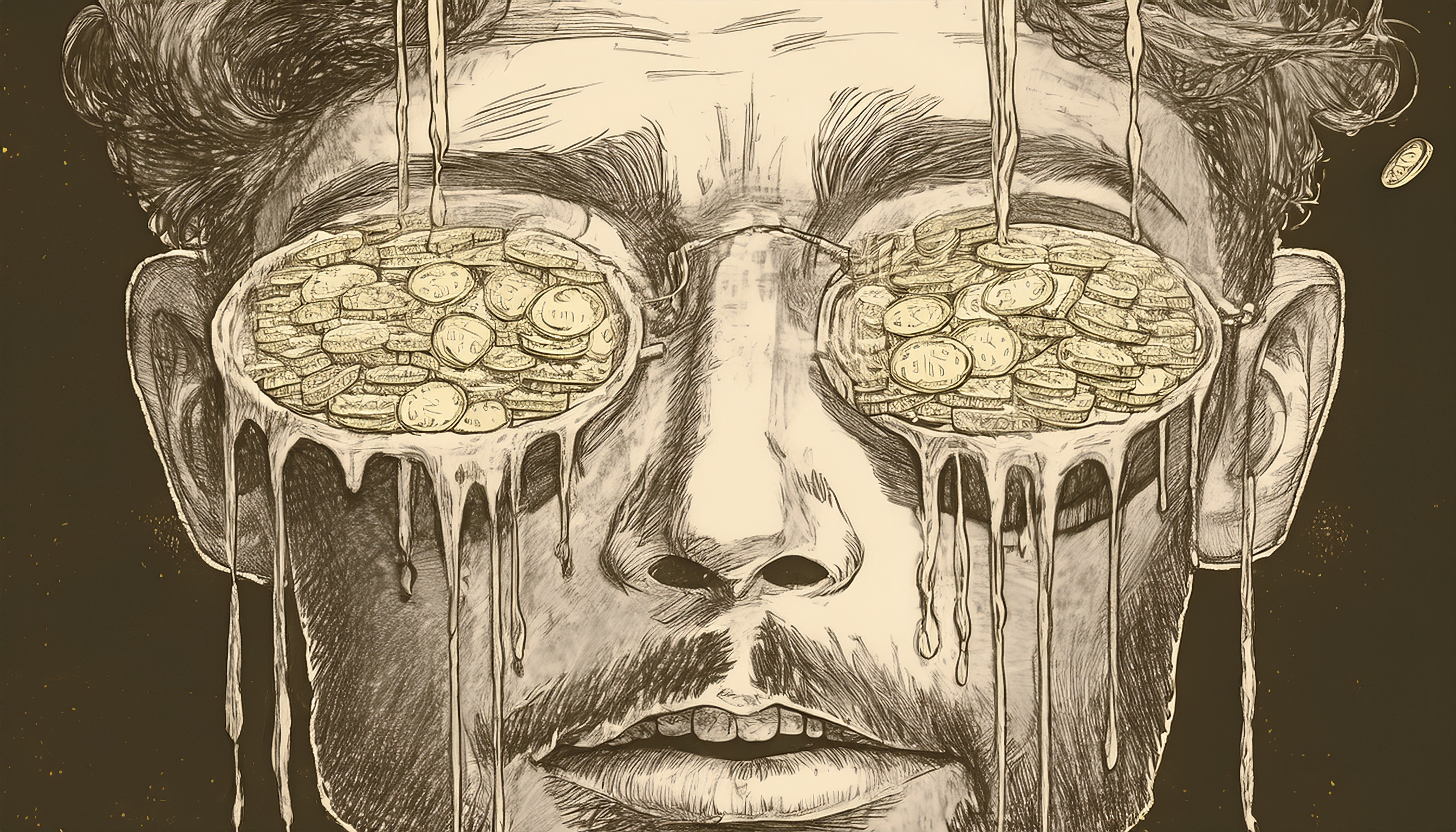The Little Man and the Philosophy of Freedom
Can Freedom and Coercion be Mutually Inclusive?
When the little man asks for a job:
But his acquaintance knits his brow and says that that is objectively impossible. Business is bad, he says, and he’s even been obliged to let many employees go. The man should not be angry with him, for it is not within his power, his freedom doesn’t extend that far.
Who is the little man?
The ordinary, powerless individual in society.
Someone who believes the “propagandaish” promise of freedom, but continually runs into 'objective obstacles.
In the example, the little man asks for a friend for a job, only to be told that the economic conditions make it objectively impossible.
Max Horkheimer observe the problem that people view such obstacle as natural and fate.
People ignore that these are artificial, products of collective actions.
This fetishization or obscuring of social process –––– is the card that keeps the ‘little man’ powerless.
But because the present system is called “free” and considered liberal, it is not terribly clear what this may mean.
Horkheimer critiques the bourgeois notion of “freedom” by showing how people believe they are acting freely, when in reality, they are bound by systemic and structural forces
The problem is when that everyone says Capitalism is free, they are assuming that it must be free.
So is society under Capitalism really free?
If so, under what Grounds? When will it not be free?
To address this problem we need to understand why does capitalism requires freedom.
SPOTLIGHT ON MR. SMITH:
Why capitalism necessitates freedom
Adam Smith:
“There is however, one very essential difference between them. Such tenants, being freemen, are capable of acquiring property, and having a certain proportion of the produce of the land, they have a plain interest that the whole produce should be as great as possible, in order that their own proportion may be so. A slave, on the contrary, who can acquire nothing but his maintenance, consults his own ease by making the land produce as little as possible over and above that maintenance”(Smith 424).
-
Smith compares free tenants (people who rent and work land but are not slaves) with slaves.
-
Free tenants can own things. They have legal rights to earn, save, and own property.
- condition: requires a legal framework
-
Free tenants gets a share of what is produced from the land they work
-
Since they get a share of the total output, they are motivated to make the land as productive as possible, because the more that is produced overall, the more they themselves get.
- is it really though?
- What happens when workers ‘overwork’?
- is it really though?
-
Still, a slave that doesn’t own anything, including himself, can’t/won’t/never can legally keep the profits of their labor.
SO WHY SHOULD THEY WORK HARD?
- Because the slave gets no reward for extra work, they logically try to do the minimum needed to survive. Producing more only benefits the slave-owner, not the slave.
So slavery must end as it is a form of stagnation under capitalism.
Not because of benevolence of the capitalist
Back to Horkheimer and the LiL MAN
“Men must submit to conditions they themselves constantly create as to something alien and overwhelmingly powerful,” (Horkheimer 51).
- not consciously created by individual
- Appear ‘natural’ and inevitable
- Alienation: felt coerced as if it was fate
“it follows that there are many agents but no conscious and therefore free subjects of social conditions,”(Horkheimer 51).
Horkheimer points that the lack of conscious social control over social forces is why real freedom doesn’t exist.
LiL Man
Why does it matter?
- his freedom is tied to the systemic economic force
- Unfavorable, and will never change for him.
Defense?
- The benefited create this myth that it is inevitable.
- Persuade, use propaganda to reveal such importance
Freedom under capitalism is highly uneven — real for some, illusory for most.
So socialism?
Nah,…
Welcome Friedrich Hayek !!!
“There would be no difficulty about efficient control or planning were conditions so simple that a single person or board could effectively survey all the relevant facts. It is only as the factors which have to be taken into account become so numerous that it is impossible to gain a synoptic view of them that decentralization becomes imperative,”(Hayek 95).
If economy were simple enough that:
-
All the relevant facts are few in number.
-
They can be known and understood completely by a single person or a small group (like a planning board).
Then efficient control and planning could be straight forward.
But, you can’t even have the same taste of music with your mom.
Reality
The “factors” — resources, preferences, production techniques, prices, local conditions, etc. — are too numerous and too scattered.
Even Marx raised this point:
The value of a commodity would therefore remain constant, if the labour-time required for its production also remained constant.
But the latter changes with every variation in the productiveness of labour. This productiveness is determined by various circumstances, amongst others, by the average amount of skill of the workmen, the state of science, and the degree of its practical application, the social organization of production, the extent and capabilities of the means of production, and by physical conditions.
Marx is arguing that the value of a commodity can’t be constant as there are multiple factors that affect the productiveness of labour.
Therefore, if GOV set a standard for a commodity value, then it would fail to reflect the mass population’s decisions.
So, the reality is that no single mind can get a “synoptic view” of decisions and factors.
Even if you can compile it, by that time, humanity already overcame Capitalism
Again, back to decentralization and Capitalism
“decentralization becomes imperative”
Relevant knowledge and information is:
- distributed by individuals.
- Often implicit or tacit
- constantly changing
Conclusion:
Central planning works fine for simple problems. But the modern economy is so complex that no central authority can know everything needed to make efficient decisions. Because of this complexity, we have to decentralize — letting decisions be made where the knowledge actually is.






